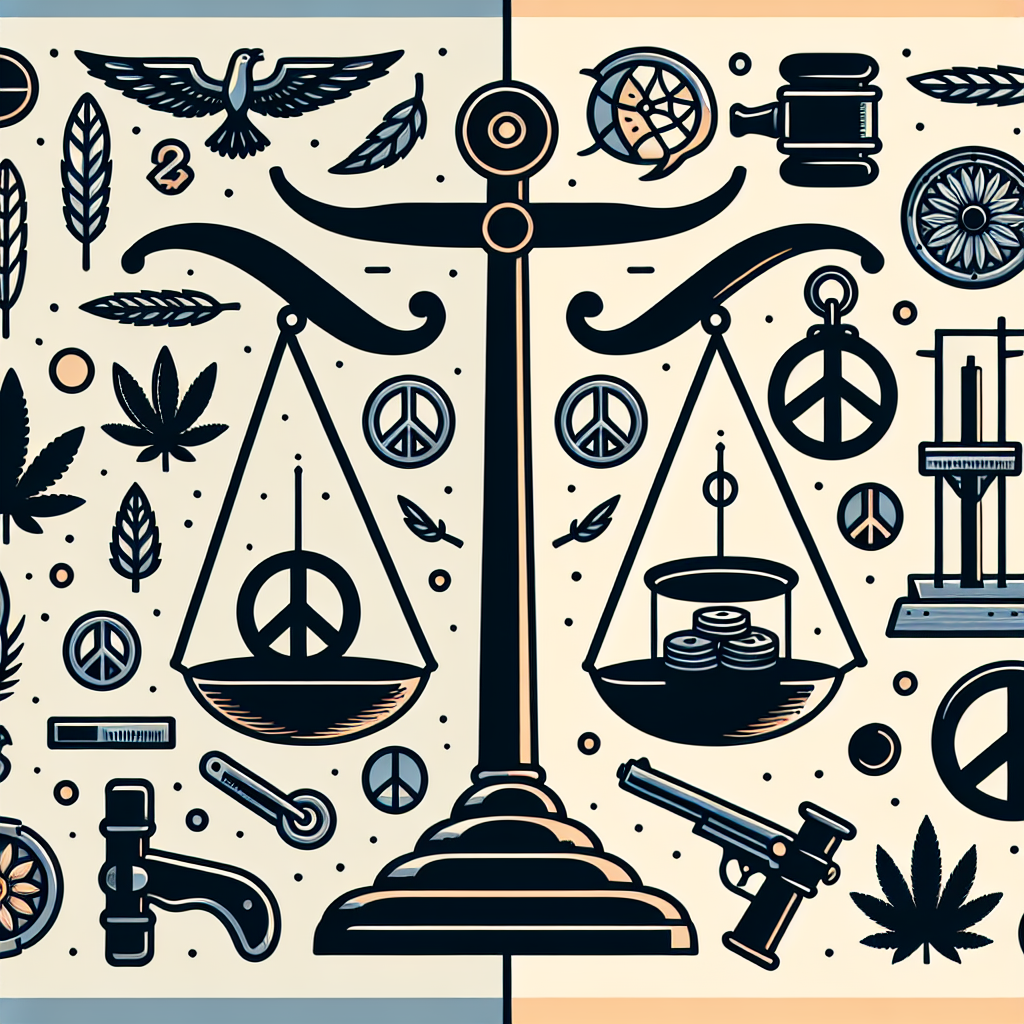The Libertarian Take on Drug Policy: Legalization vs. Criminalization
In recent years, the debate surrounding drug policy has intensified, galvanizing advocates from different sides of the spectrum. Among these voices, Libertarians offer a distinct perspective, one that emphasizes individual freedom, personal responsibility, and limited government intervention. This article explores the Libertarian take on drug policy, contrasting the principles of legalization with criminalization.
Understanding Libertarian Principles
Before delving into the specifics of drug policy, it’s vital to grasp the core Libertarian principles that shape their stance. Libertarians believe in the following:
- Individual Freedom: Each person owns their body and has the right to make choices about their own life, including the use of substances.
- Personal Responsibility: With freedom comes responsibility; individuals should face the consequences of their actions, but not be criminalized for them.
- Limited Government: Government should not interfere in personal choices unless those choices infringe upon the rights of others.
These tenets fundamentally inform the Libertarian approach to drug policy.
The Case for Legalization
Promoting Personal Freedom
Libertarians argue that legalizing drugs respects individual autonomy. If adults can make choices about their bodies and lives, it stands to reason that they should be able to choose what substances to consume without government interference. This perspective promotes a society where individuals take responsibility for their decisions.
Reducing Crime and Violence
The criminalization of drugs has historically been linked to increased violence and crime. Drug trafficking, gang-related violence, and the funding of criminal enterprises thrive in environments where substances are illegal. By legalizing drugs, Libertarians argue, we can eliminate the black market, reduce crime rates, and allocate resources to legitimate health concerns rather than policing personal choices.
Economic Benefits
Legalization could have significant economic advantages. Taxing legal drugs would generate revenue for governments while also reducing the costs associated with law enforcement and incarceration. Moreover, legal markets would create jobs, boost local economies, and promote safer consumption practices through regulation.
The Pitfalls of Criminalization
Marginalizing Vulnerable Populations
Criminalizing drug use disproportionately affects marginalized communities, leading to systemic inequality within the justice system. Libertarians contend that these policies create a cycle of disadvantage, with low-income individuals facing harsh penalties for lifestyle choices, exacerbating social inequalities.
Overcrowded Prisons and Legal Costs
The war on drugs has led to overcrowded prison systems and extensive legal costs for society as a whole. Many individuals incarcerated for drug offenses are non-violent offenders whose only crime is their choice of substance. Libertarians advocate for decriminalization as a means to alleviate pressure on the criminal justice system.
Ineffective Prevention and Treatment
Criminalization often fails to address the root causes of drug addiction. Instead of implementing preventive measures and treatment options, the focus on criminal punishment merely perpetuates the cycle of addiction and incarceration. Libertarians argue that a public health approach—where drug use is treated as a health issue rather than a criminal one—would be far more effective.
A Public Health Approach: Harm Reduction
What is Harm Reduction?
Libertarians often support harm reduction strategies, which prioritize health and safety over punitive measures. These strategies include:
- Safe Consumption Spaces: Providing supervised environments where individuals can use drugs safely, reducing overdose risks.
- Needle Exchange Programs: Offering clean needles to prevent the spread of diseases like HIV and hepC.
- Access to Treatment: Ensuring individuals have access to mental health and addiction services without fear of legal repercussions.
The Effectiveness of Harm Reduction
Research has shown that harm reduction strategies can effectively reduce drug-related morbidity and mortality. By focusing on health rather than punishment, Libertarians believe society can better mitigate the negative impact of drug use.
Conclusion: Finding a Middle Ground
The Libertarian perspective on drug policy advocates for independence and personal responsibility while challenging the effectiveness of criminalization. Legalization coupled with harm reduction strategies offers a pragmatic approach that respects individual freedoms and promotes public health.
Engaging in rational dialogue about drug policy is crucial as societies evolve. The Libertarian take offers insightful critiques of the status quo and encourages a reevaluation of existing laws. With drug policy at a crossroads, it’s time for policymakers and citizens alike to consider a future where the focus is on health and dignity rather than punishment.
Share this content:












Post Comment